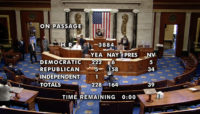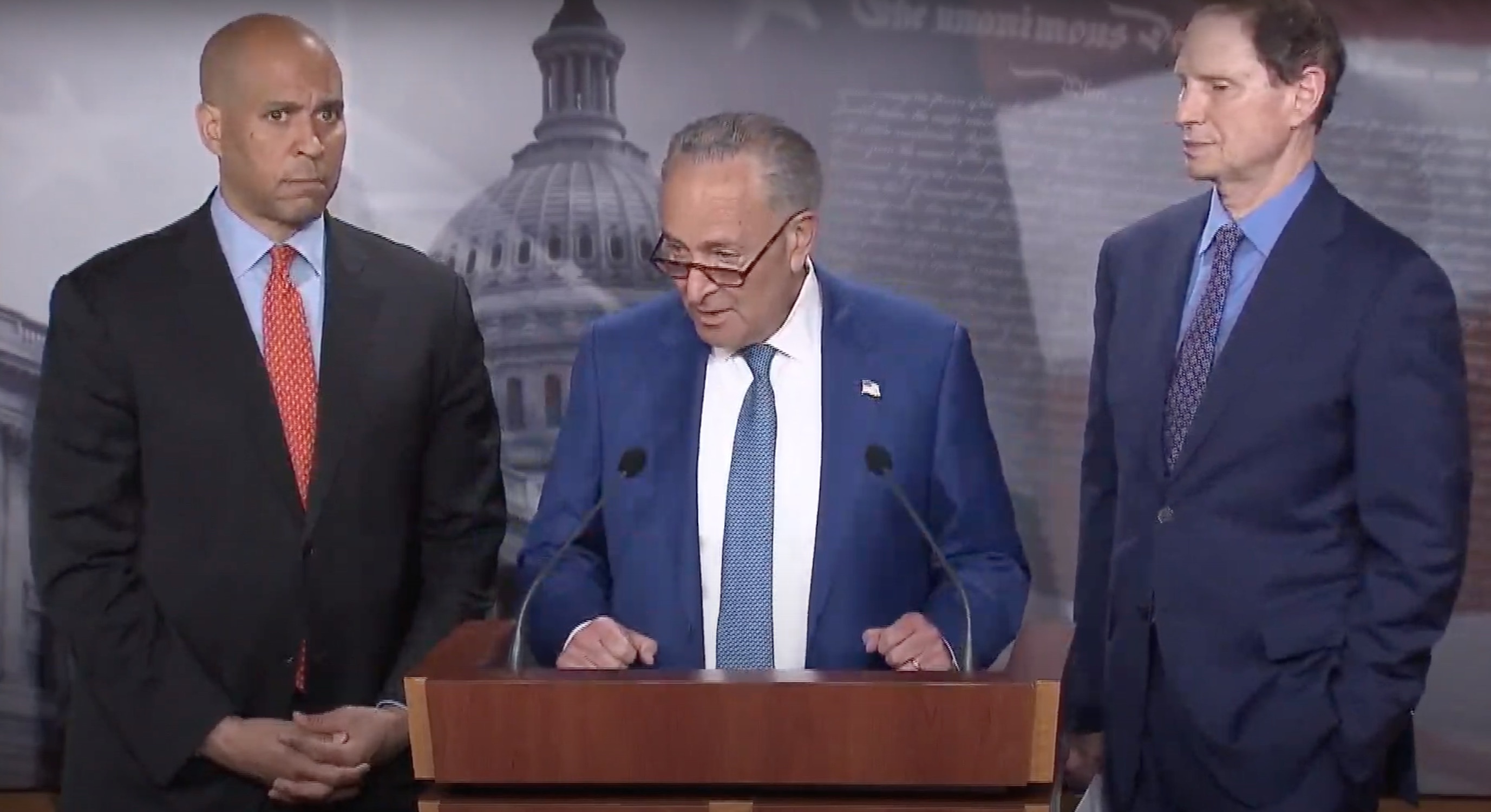2022 brought more change and visibility to the cannabis industry than nearly any year before. Two of five legalization ballot measures passed, bringing the total number of states with legal medical or medical and recreational laws to 39. President Biden issued an executive order pardoning nonviolent offenders and directing a review into rescheduling cannabis. The Medical Marijuana and Cannabidiol Research Expansion Act was enacted. Cannabis arose prominently in legislatures across the country, with over 50 federal bills and hundreds of state-level measures introduced.

But as 2022 came to a close, only a handful of actions are being carried into the new year, and the industry faces more hardship and turmoil than it has since the inception of legalization. Legal cannabis retailers and cultivators in markets across the country continue to struggle with onerous regulations and competition from the illicit market, and oversupply in these markets is driving down prices as West Coast growers and manufacturers anxiously await interstate commerce.
Looking ahead to the coming year, industry watchers can anticipate certain issues and legislation: further investigation into cannabis’ classification on the Controlled Substances Act (CSA) from federal agencies, federal cannabis pardons coming to fruition, a follow-up from the Department of Justice’s technical report, and the reintroduction of high-profile federal legislation, like the Cannabis Opportunity Act (CAOA), the States Reform Act, Marijuana Opportunity Reinvestment and Expungement (MORE) Act, Harnessing Opportunities by Pursuing Expungement (HOPE) Act and the Secure and Fair (SAFE) Banking Act.
Below, we recap some of the big moments of 2022 and what to expect in 2023.
A Presidential Pardon for Simple Possession
On Oct. 6, President Biden made a historic announcement to “grant a full, complete, and unconditional pardon to all current United States citizens and lawful permanent residents who committed the offense of simple possession of marijuana in violation of the Controlled Substances Act” and “all current United States citizens and lawful permanent residents who have been convicted of the offense of simple possession of marijuana in violation of the Controlled Substances Act.” His executive order also encouraged governors to follow suit for cases regarding state offenses and requested that the secretary of Health and Human Services and the attorney general “expeditiously” review how cannabis is scheduled under federal law.

The president’s strategic plan attempts to at least partly address some of the adverse impacts of the United States’ war on drugs on certain populations like low-income and Black and Latinx Americans. While an admirable and important effort, certain portions of his executive order will take much longer than others to yield tangible impact. A federal pardoning can take anywhere between two to five years, and the laws and duration of state-level pardoning vary—depending on the state and its governing practices. Additionally, since governors are not required to pardon individuals following the president’s executive order, some convicted persons may never see or be able to seek justice. And the most uncertain timeline relates to the review of cannabis’ classification on the CSA. Rescheduling or descheduling a substance under the CSA can be tedious and grueling, and, as seen with other substances, the process can range from four to ten years. However, the exercise is ongoing, and although results may not be shared in time for the 118th Congress, it is to be expected that the issue will be discussed at length in 2023 and beyond.
Descheduling, Decriminalizing & Banking Legislative Efforts
1. CAOA.
When it comes to legislation, there is no question that Majority Leader Chuck Schumer (D-NY) and Sens. Ron Wyden (D-OR) and Cory Booker (D-NJ) will reintroduce the CAOA in 2023. The comprehensive legislation aims to decriminalize cannabis by removing the drug from the CSA and tackles issues related to research, public safety, restorative justice and equity, taxation and regulation, public health and industry practices.
2. States Reform Act.

Another piece of legislation we anticipate seeing in the 118th Congress is Rep. Nancy Mace’s (R-SC) States Reform Act. Coming from a state without any cannabis laws, the freshman congresswoman introduced a measure that would federally decriminalize cannabis by fully deferring to state powers over prohibition and commercial regulation and regulate cannabis products like alcohol. In 2022, the bill received positive feedback from the industry and dominated the discussions during the Developments in State Cannabis Laws and Bipartisan Cannabis Reforms congressional hearing. With its bold cannabis sponsor, who will now serve as the House Oversight Subcommittee on Civil Rights and Civil Liberties chair, the States Reform Act will undoubtedly take center stage in 2023.
3. MORE Act.
Sponsored by Rep. Jerry Nadler (D-NY), the MORE Act will also be reintroduced in 2023; however, it remains to be seen how much attention the bill will receive. The MORE Act aims to decriminalize cannabis by removing the drug from the CSA and eliminating criminal penalties for anyone who manufactures, distributes or possesses cannabis. In the 117th Congress, Rep. Nadler served as the chair to the House Judiciary Committee and was able to advance his measure through the chamber with ease. But since the House majority has flipped, and Rep. Jim Jordan (R-OH) is likely to serve as the chair, getting the MORE Act to the floor for a vote may be challenging—especially given Rep. Jordan’s opposition to the cannabis sector.

4. HOPE Act.
The HOPE Act often flies under the radar, but this Republican-sponsored bill made headlines during the 117th Congress. Sponsored by Co-Chair of the Congressional Cannabis Caucus (CCC), Rep. Dave Joyce (OH), the bipartisan legislation aims to help states with expunging cannabis offenses by reducing the financial and administrative burden of such efforts through federal grants. Although it was not considered in the House, the language of the bill was heavily debated by the Senate, particularly toward the end of the year when the chamber was negotiating the final text for end-of-year must-pass packages, like the National Defense Authorization Act (NDAA), the Omnibus and the Continuing Resolution (CR). Alongside the SAFE Banking Act, the HOPE Act was one of the only cannabis bills that had a realistic chance of advancing as part of a larger legislative vehicle, so there is no question that the congressman will reintroduce the measure in the upcoming congressional session.
5. SAFE Banking Act.
And last, but certainly not least, is the most discussed cannabis bill this year: the SAFE Banking Act. The legislation aims to create a safe harbor for financial institutions to provide traditional banking services to cannabis businesses in states that have legalized the drug. It also allows cannabis businesses to access lines of credit, loans and wealth management. It has now passed in the House seven times, with bipartisan support. And although the SAFE Banking Act was debated by the House several times throughout the year, the Senate did not tackle the bill until November. By the time discussions for the bill’s language had taken off, Sen. Booker remained firm that he would only support a cannabis bill if it included criminal justice and social equity reform language. In an attempt to satisfy the senator’s demands, Majority Leader Schumer considered marrying the SAFE Banking Act and the HOPE Act as part of a larger package.
However, and much to the cannabis industry’s detriment, not only was the timeline for those bills a little too late, but Democrats were, unfortunately, unable to fix the money laundering and cash legacy concerns of Sen. Chuck Grassley (R-IA) and other Republicans.

Photo: Nick Fisher, Flickr
After attempting to attach the SAFE Banking Act to multiple vehicles, retiring Congressman Ed Perlmutter (D-CO), sponsor of the legislation, and Sen. Schumer were unsuccessful in getting the bill over the finish line. In a final Hail Mary, Sen. Schumer attempted to include the language to the Omnibus, but compounded with the technical assistance report from the Department of Justice (DOJ) and ongoing media flurry, he and the Democratic party yet again came up empty-handed.
The question now is: who will carry the SAFE Banking Act and Rep. Perlmutter’s legacy in 2023? Many will look toward cannabis industry champions like Reps. Joyce, Mace, Earl Blumenauer (D-OR) and Brian Mast (R-FL). However, it would be worth considering other members of the CCC and some of the incoming freshmen, particularly those from a state with legal cannabis laws. It is also entirely possible that Sen. Jeff Merkley (D-OR) finds his own sponsor to carry his companion bill in the House since he has already announced that he looks forward to working on the legislation in the upcoming year. Regardless, it is highly likely that the SAFE Banking Act will be reintroduced in 2023 and considered throughout the year.
6. Other Measures
Other measures that are likely to reappear in 2023 are the Capital Lending and Investment for Marijuana Businesses (CLIMB) Act, Veterans Equal Access Act, the GRAM Act, Common Sense Cannabis Reform for Veterans, Small Businesses and Medical Professionals Act, VA Medicinal Cannabis Research Act and the Homegrown Act. Additionally, the passage of the Medical Marijuana and Cannabidiol Research Expansion Act and the advancement of many of these federal bills have opened the gates for new legislation related to medical and recreational cannabis, research, veterans’ access, financial services, criminal justice reform and social equity, and public health and safety to emerge.
For states with legal cannabis laws, bills related to enhancing the state’s medical or medical and recreational programs, preventing industry oversaturation and price gouging, expanding licensing opportunities, criminal justice reform, youth and advertising protections and impaired driving are likely to be introduced. States where cannabis ballot measures failed will likely see those measures resurface.
The continued growth of legalization across the country is all but inevitable. In the nearer term, the industry will focus on how to remain viable in the face of high taxes and oversupply in 2023. New Congressional leadership could lead to bipartisan cannabis legalization if enough members are willing to rally behind their colleagues who are pushing for cannabis legislation. While the road is long before we will see the full impact from President Biden’s Oct. 6 announcement, the action proves those in power cannot ignore the ever-growing numbers of Americans across party lines and demographics who agree that cannabis use should be legal and regulated.


























